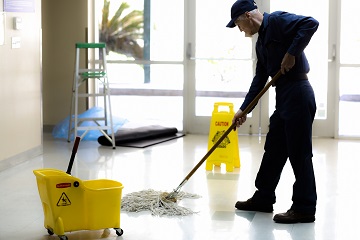Reporting a hazardous workplace
| Description: |
Worker's health and safety rights
The Occupational Health and Safety Act sets out the workers' rights, including:
The Act also sets out the responsibilities of workers and employers. The worker must:
The employer's duties
The employer must make sure that the workplace is safe and healthy and mustn't allow any worker to do work which is potentially dangerous. Information and training about dangers. Employers must:
Reducing dangers in the workplace. Employers must
Health and safety representatives. Employers must:
Procedures for dealing with accidents. Employers must:
Reporting accidents or incidents. Employers must:
It's a crime not to report these kinds of accidents. To report an occupational injury the employer needs to fill in Part A of form W.CI.2. Part B of the form needs to be completed by the doctor or hospital treating the worker. The employer needs to send Part A of the form to: Compensation Commissioner Labour inspectors
Labour inspectors ensure that employers and workers perform their duties. Labour inspectors can visit the workplace and ask questions to find out if the environment is safe and healthy. If the employer hasn't met their responsibilities, the inspector can issue a fine, If a worker is hurt at work as a result of the employer not following a safety regulation, then that employer can be fined up to R100 000 and /or imprisoned for 2 years. |
| Instructions: |
For more information on labour inspectors, contact the Department of Labour: Western Cape Provincial Office: Tel: 021 441 8000 Labour Centres Find the Labour Centre nearest to you. Western Cape Satellite Offices Find the Satellite Office nearest to you. |
| Government Body: | (The Government of South Africa) |
- Claiming compensation for occupational injuries or diseases (Service)
- Occupational Health and Safety Act, 85 of 1993 (Act) (File type: pdf; size: 114.47 KB)
- Compensation for Occupational Injuries and Diseases Act, 130 of 1993 (Act) (File type: pdf; size: 182.58 KB)
- Compensation for Occupational Injuries and Diseases Amendment Act, 61 of 1997 (Act) (File type: pdf; size: 194.11 KB)

 The
The  The following workplace accidents must be reported within 7 days:
The following workplace accidents must be reported within 7 days:
